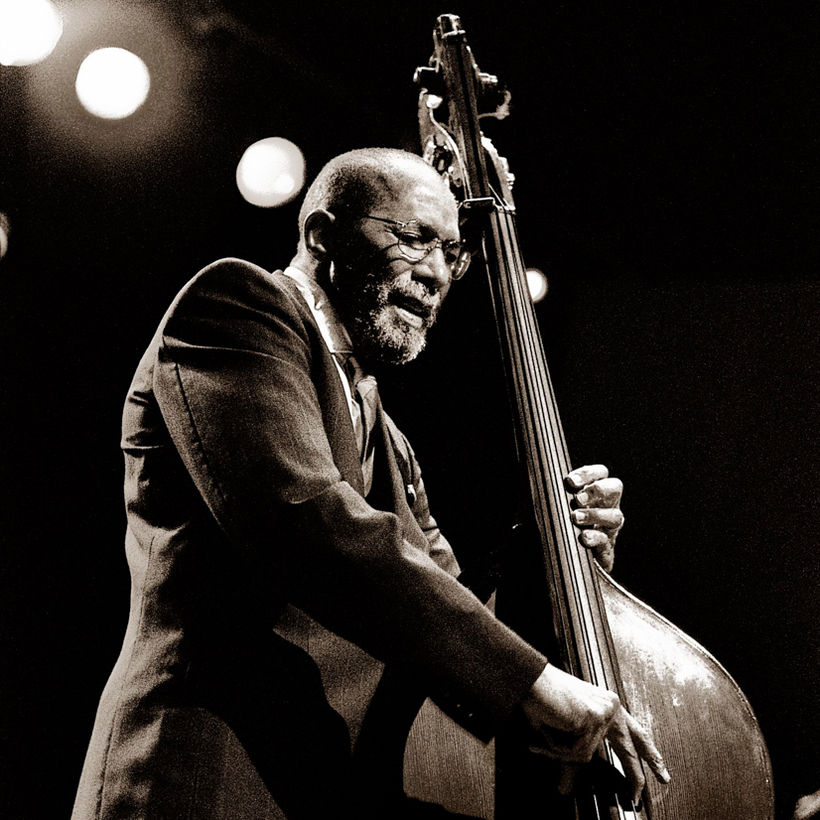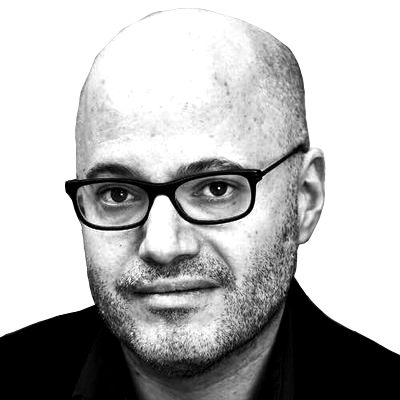In music, time is all, and it is the bass player’s job to keep it. Time is the heartbeat, the metronome, the pulse. In the hands of a virtuoso, it is also lyrical and hypnotic, and if it’s jazz, it swings. According to Guinness World Records, Ron Carter is the world’s most recorded bass player, anchoring jazz masterpieces with Miles Davis, Wayne Shorter, Eric Dolphy, and Herbie Hancock, among scores of others, and supporting Roberta Flack, Paul Simon, Billy Joel, and A Tribe Called Quest—on nearly 3,000 albums. And he’s still in the clubs, six nights a week, tall and powerful, graceful and elegant, walking that bass anywhere it could possibly go.

Is he aware of his 60 years of history as a virtuoso? “I’m aware of the bartender,” Carter says, “shaking the drink when I’m doing a ballad.” He doesn’t miss a thing, but then that’s his role. A bass player keeps time, but the world’s greatest owns it.
I saw Carter celebrating his 80th birthday at Birdland, where he thanked his fellow musicians for “a real week of growth.” He’s still growing, and on May 10 he will be celebrating his 85th birthday at Carnegie Hall with his trio, his quartet, and his octet, along with a range of cellos that would sound sublime anywhere but especially in this hallowed hall. “I’m a product of those 3,000 records,” he says, “and they were a free school for me. So, yes, wherever I am, I’m a product of all my experiences.”

To explain how he does it, he tells me to draw four vertical lines and four horizontal lines of four x’s. “So you have 16 x’s on rows of 4,” he says. “Now connect them any way you want, as long as they are connected to the same line. This is one measure of music and those x’s represent notes.” Keep drawing until you have connected every possible line and it looks like spaghetti. There is no formula to being Ron Carter, but there is an equation, at least in his mind. Every night, there is a pulse, a groove, and even if it’s a song he has played for more than 60 years, the variations can be infinite, measure by measure ad infinitum. “This is what I go through every night on a gig.”
Carter has played free and steady and everything in between, at any speed, with any mood. When he started, giants walked the earth—Coltrane, Miles, Monk—and this giant still does. At the beginning of his career, he was challenging time with Dolphy, cutting it up and putting it back together with Miles Davis, and he was always there, owning it. On any of those roughly 3,000 records, you hear support but also a quest. Get a metronome to set the time. Find a master to make it human. Carter just turned 85, but he’s still getting started. “I’m still trying to find the right notes, man.”
“For the Love of Ron—Ron Carter and Friends: 85th Birthday Celebration” will be on at Carnegie Hall on May 10
David Yaffe is a professor of humanities at Syracuse University. He writes about music and is the author, most recently, of Reckless Daughter: A Portrait of Joni Mitchell. You can read his Substack here

